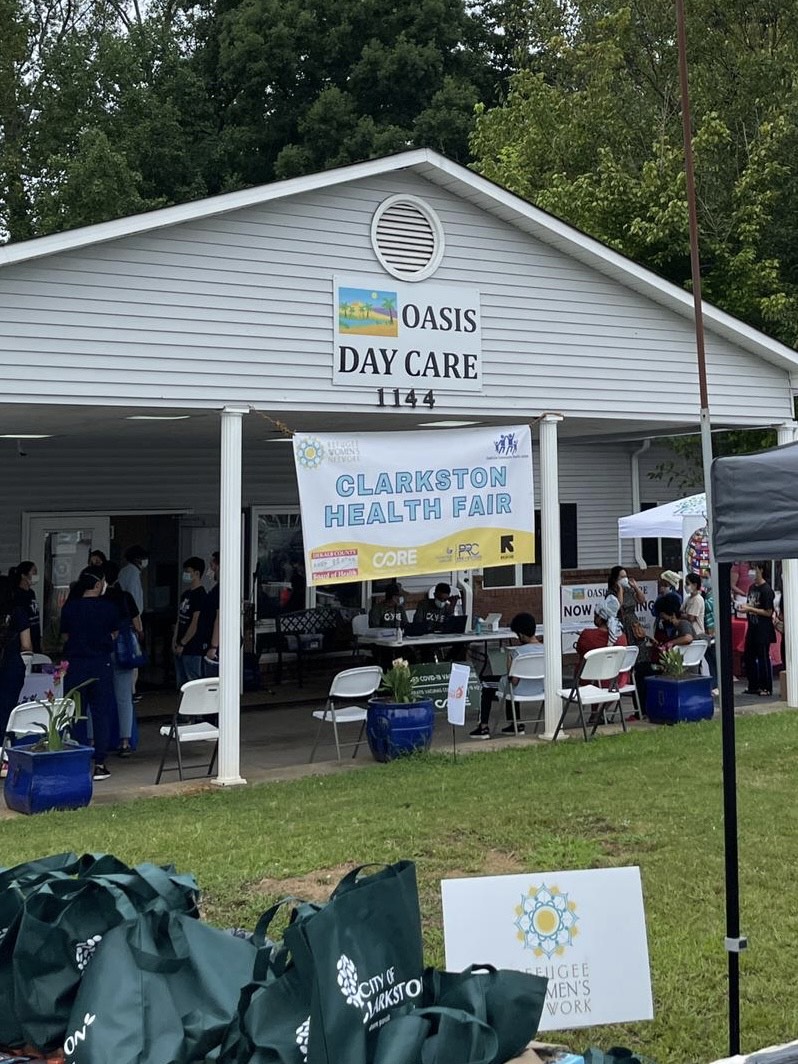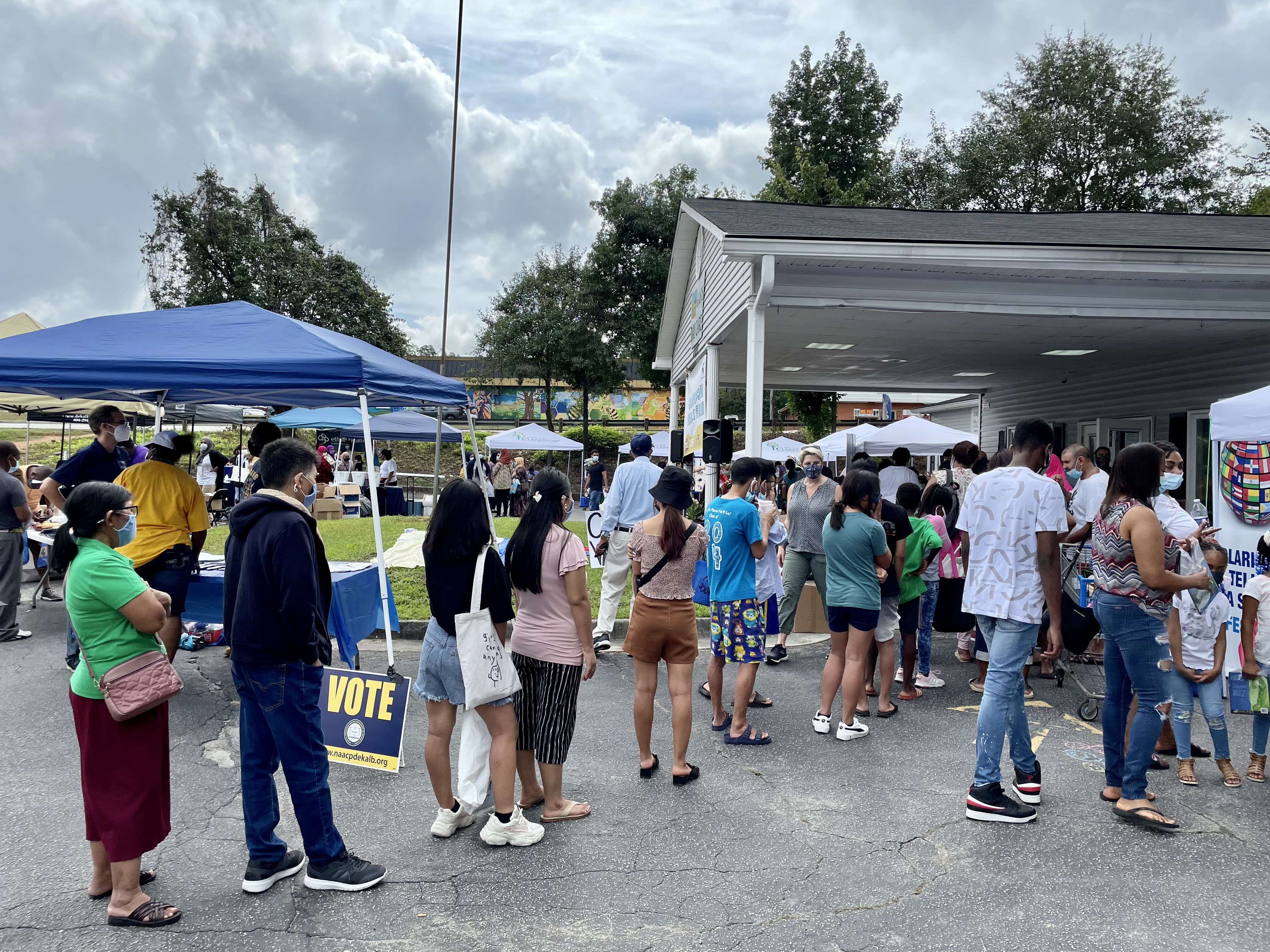Many refugee, immigrant, and migrant (RIM) community members experience significant barriers to getting accurate information about the COVID-19 vaccine, as well as the vaccine itself. At clinics and mass vaccination events, the challenge of navigating a large and confusing site with unfamiliar staff can be intimidating.
Community fairs are a promising way to offer vaccination and other useful services to RIM communities in a relaxed and informal setting. Hosted at an accessible site, community fairs can be organized around themes ranging from school to community health to community resources like food, rent and utility assistance. Any theme that is likely to be useful to community members and engage their participation is suitable.
Community fairs can provide an enjoyable social setting for information exchange about COVID-19, testing, and vaccines. Unlike vaccination clinics and mass vaccination sites, where community members come only for a vaccine or don’t come at all, community fairs draw attendees who might be interested in one of the other activities or services, or who might be interested in getting more information about the COVID-19 vaccine before making a decision about getting vaccinated.
A Community Fair in Arizona
At the beginning of the 2021-22 school year, the IRC in Tucson and its partners hosted a back-to-school themed community fair that offered vaccines. The fair, which also included giveaways, music, and opportunities for social gathering, was promoted through phone calls, as well as texts and Facebook posts that featured images of flyers.
Nearly 150 RIM community members attended the fair. They received not only free school supplies and diapers, but also translated information on COVID-19 testing and vaccines. A doctor was available to answer questions, and vaccines were offered on-site to those who wanted them.
Placing vaccines in this setting made a difference for the participants. “It definitely had a different feel and mood. It felt like a community event,” says Carly Presley, the COVID-19 Outreach Coordinator.
Leveraging Health Fairs for Vaccinations in Georgia
Since early 2021, the IRC in Atlanta has organized numerous COVID-19 vaccination events in partnership with CORE (Community Organized Relief Effort). One particularly successful model for these events is the health fair.
In August 2021, at the Clarkson Health Fair, IRC-CORE team helped administer 135 COVID-19 vaccines and distributed over 1,000 NRC-RIM flyers regarding the Delta Variant and Pediatric Vaccines. The fair was held in an area that is central to Atlanta’s RIM communities and accessible on foot.
The IRC-CORE team worked alongside a number of partner organizations, including the Refugee Women’s Network, Clarkston Community Health Center, Center for Victims of Torture, and the DeKalb County Board of Health. These partner organizations offered interpretation in about 20 languages, including Swahili, Rohingya, Burmese, Nepali, Tigrinya, Dari and Pashto.
The Clarkson Health Fair provided not only COVID-19 vaccines, but also a range of other much-needed services, like vision, dental and physical check-ups, assistance with benefits registration, and assistance with employment services. There were food trucks on-site, and school supplies were given away as an additional incentive for participation.
The IRC in Atlanta offers these tips for organizations considering hosting their own health fairs:
- Think creatively about what services can be provided to encourage attendance (e.g., food trucks, face painting, school supply giveaways, etc.). People may not come for the vaccine alone but for another service or activity.
- Have translated flyers and signs. Have vaccine providers who are from the target linguistic or ethnic communities and who can answer questions in the community members’ native languages. This will make community members feel welcome and reassure them that the event was created with their linguistic and cultural needs in mind.
- Content marketing is key. Create a compelling story about your organization's overall COVID-19 work and include health fairs as a part of that narrative. Identify local social media influencers who can help promote the fair and encourage attendance (click here for the Promising Practice about social media influencers). Ensure partner organizations participating in the event have the graphics, flyers and messaging they need to promote the event to their own networks and on their social media channels.

